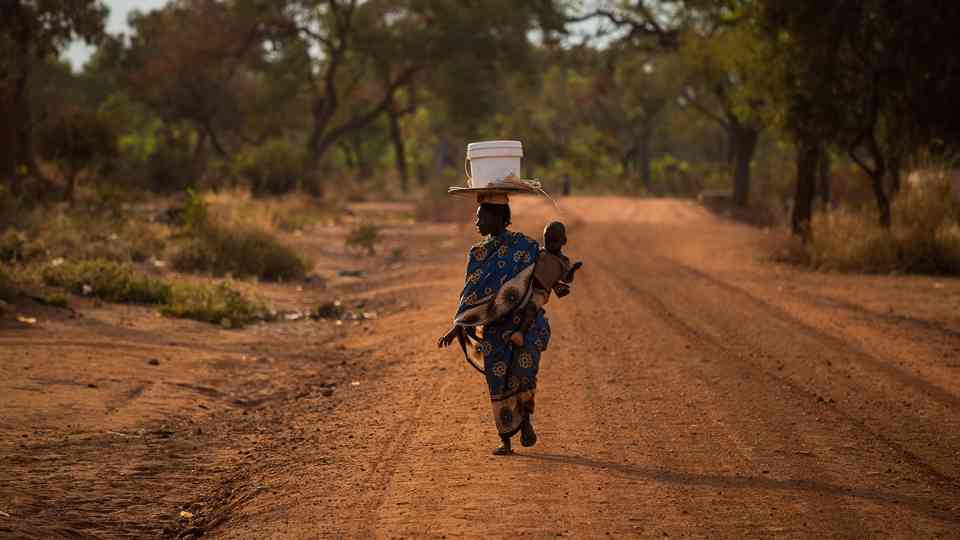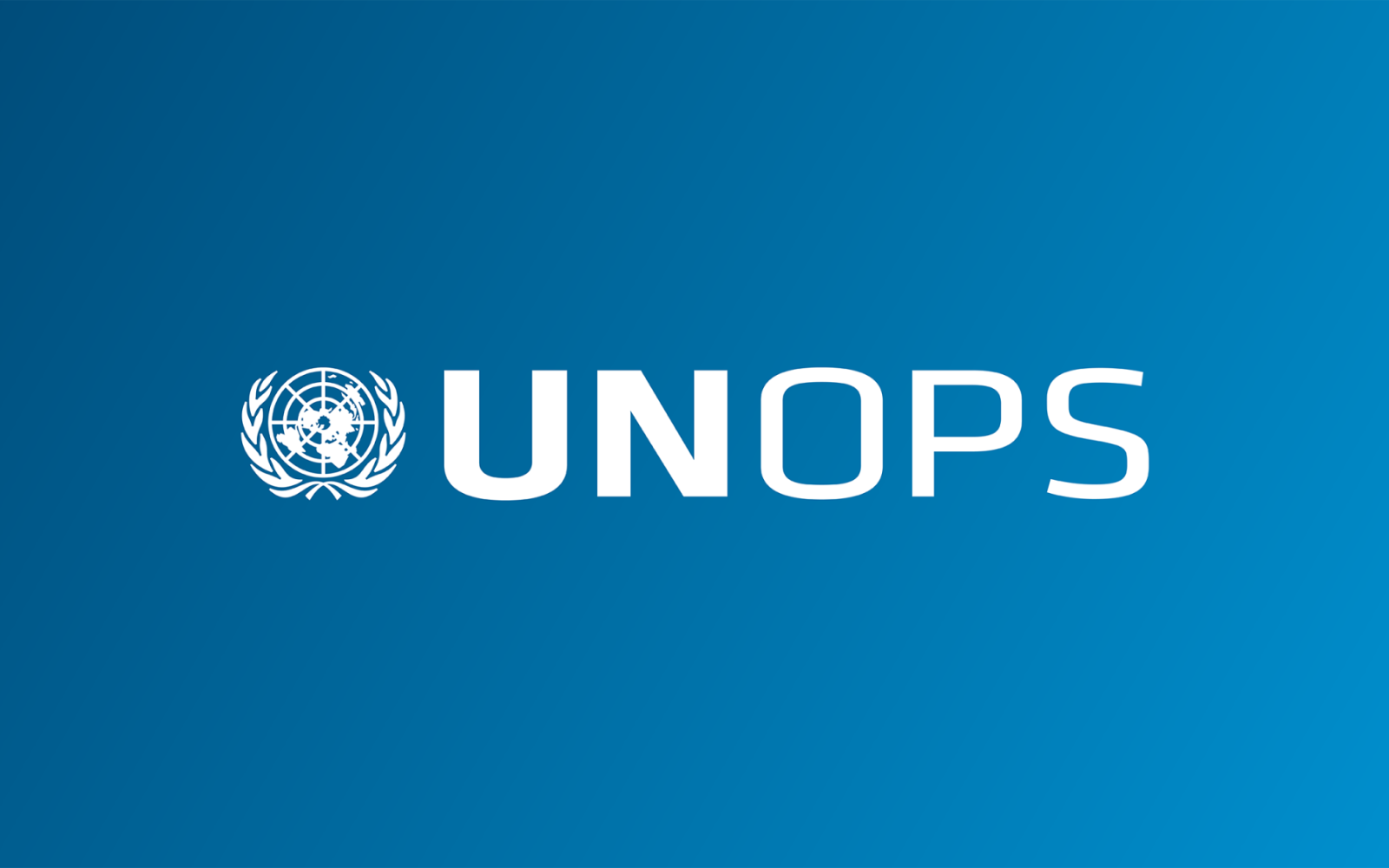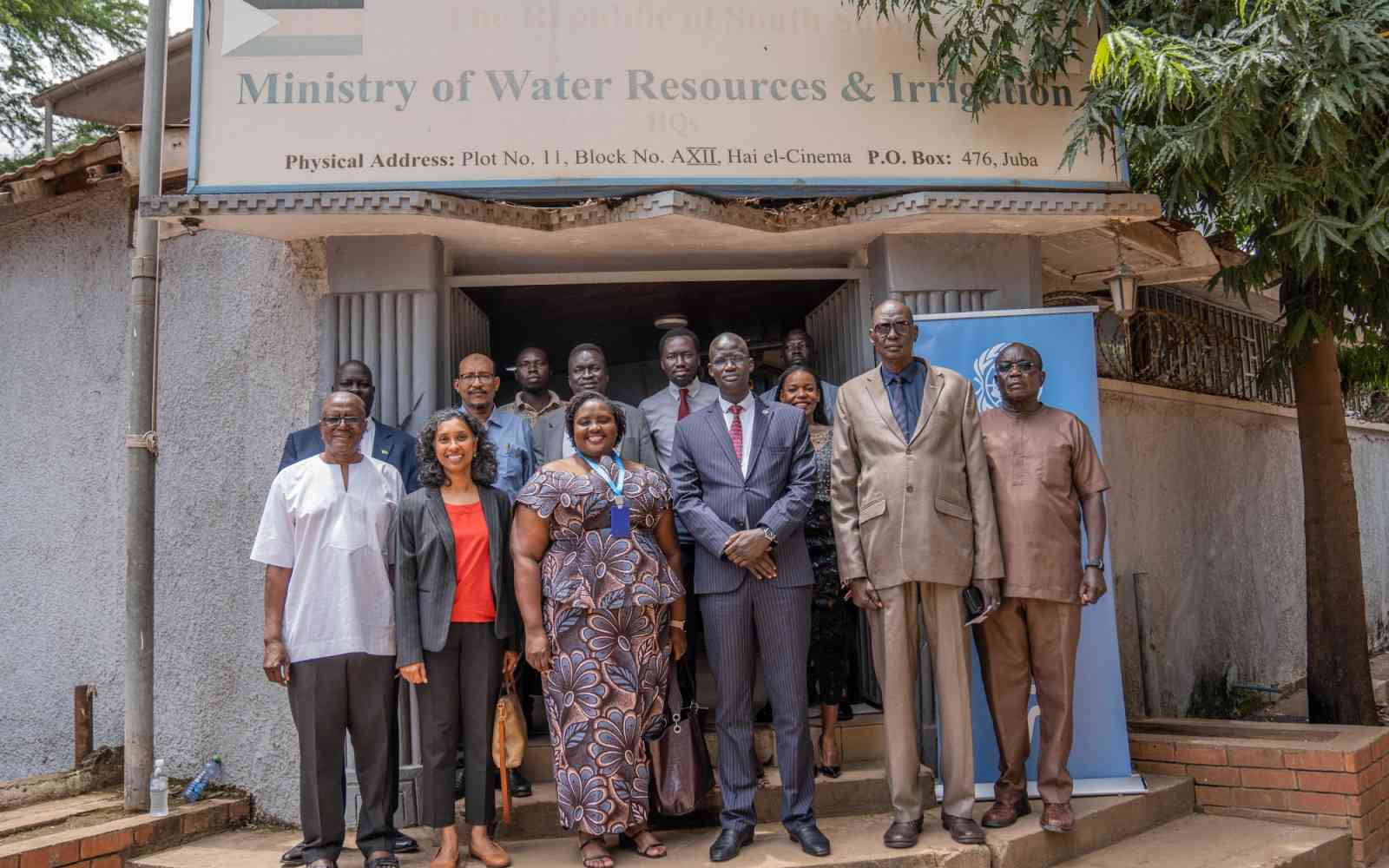The United Nations Office for Project Services (UNOPS)
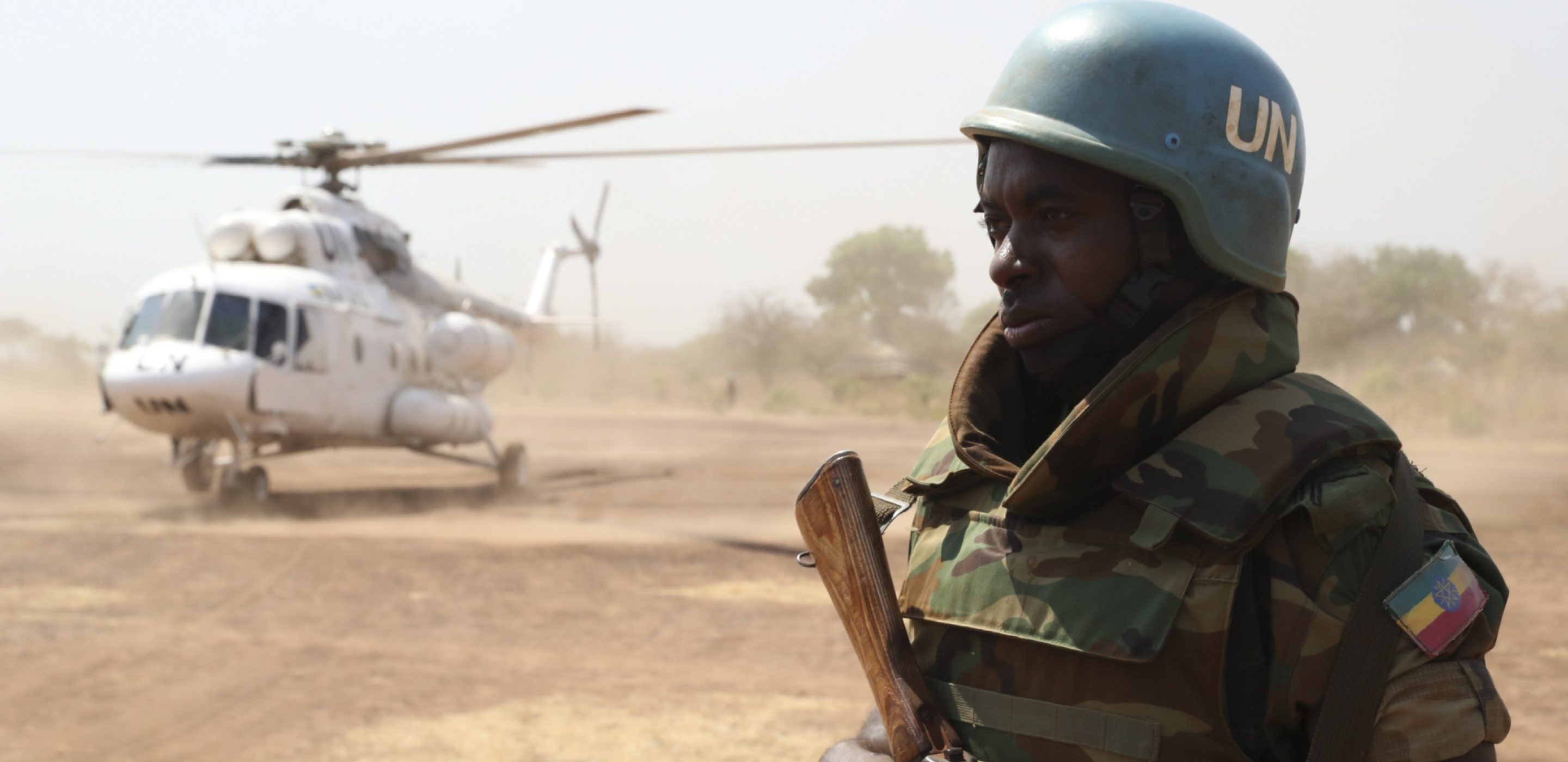
Behind the scenes
In celebration of International Day of UN Peacekeepers, we’re taking a closer look at how UNOPS provides behind the scenes support to the United Nations Mission in South Sudan (UNMISS).
With around 14,000 personnel deployed throughout the country, UNMISS works to deter violence against civilians by providing a safe environment for South Sudanese people who have fled violence and sought sanctuary at Protection of Civilian sites. UNMISS peacekeepers also facilitate the safe delivery of humanitarian assistance, such as food, clean water, shelter and healthcare.
Following nearly five years of ongoing conflict and a stagnant peace process, the country has around 1.76 million internally displaced people, and 2.45 million seeking refuge in neighbouring countries.
The peacekeeping mission consists of many remote camps spread across South Sudan, often in hard-to-reach areas. Poor infrastructure, worsened by a long rainy season and ongoing conflict, makes supply especially challenging and even basic camp maintenance can be difficult.
Since December 2016, UNOPS has supported UNMISS with the delivery of camp support services essential to the functioning of 11 camps. Over 400 South Sudanese personnel, hired and managed by UNOPS, deliver a range of services that help ease the logistical burden on UNMISS.




A waste management system introduced by UNOPS is further contributing to healthier living conditions and helping reduce the mission’s environmental footprint. Plastic bottles and cans are collected and compacted and then transported to Juba for recycling, making use of the previously empty trucks and airplanes returning to the capital after delivering supplies to the field. In one of the camps, Torit, the new waste management system helped reduce the camp’s volume of solid waste by 64 percent in the first six months.
Waste management requires behavioral change: “People are from different backgrounds and have different habits. We worked with UNMISS Environmental Officer to teach people with clear signage and equipping each room with two baskets – one for recycling plastic and metal and another for organic waste,” says Kanthan Thayalan, Facilities Manager in Wau.
The positive impact is felt by camp residents.
What’s really special about this project is that, beyond the services, the Facilities Managers have brought their own skills and contributions to each location.”
In Torit, a previously dry plot of land has turned into a sprawling vegetable garden. The garden was started by seeds brought by Facilities Manager Hendrik Stoltz and is maintained by UNOPS personnel. It now serves the camp’s cafeteria with fresh vegetables. The kitchen has been renovated, and Mr. Stoltz, who is a trained chef, has trained kitchen personnel on cooking, health and safety.
“Seeing how the camp has developed the last 16 months has been a total turnaround, and more is going on. UNMISS supports me with all these things. They love it – they didn’t have it before. When you are being creative people love it, especially visitors,” says the Facilities Manager.

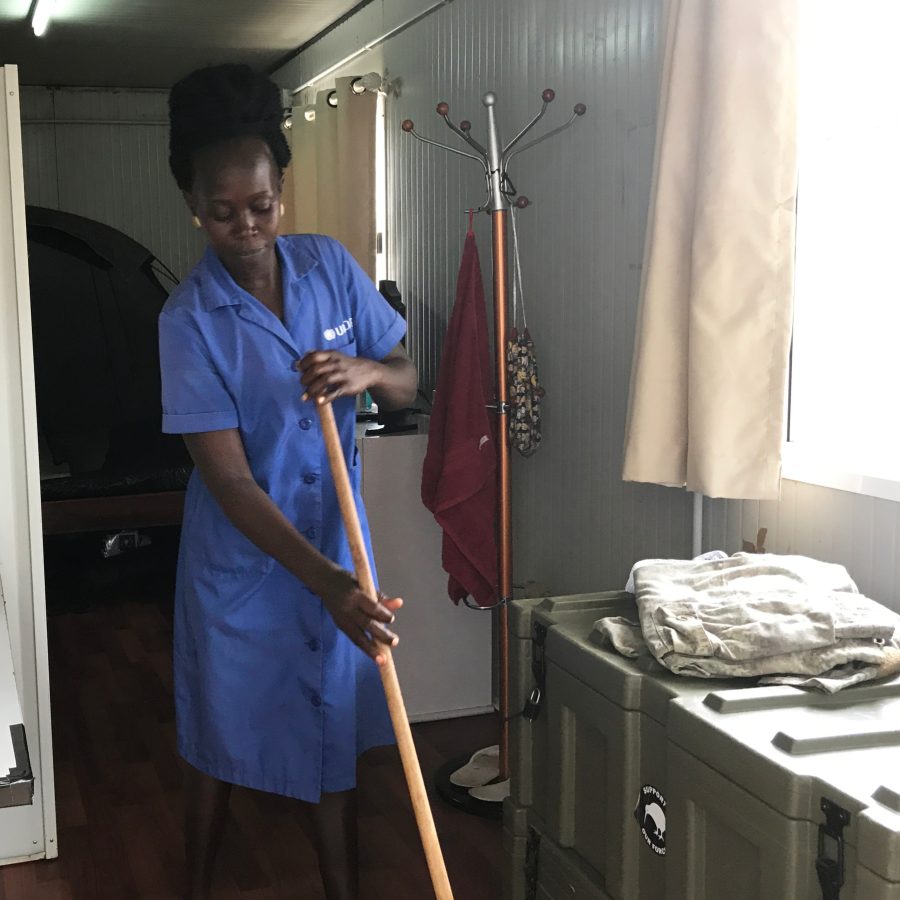
The project also creates jobs in communities near UNMISS camps – most of which are experiencing hardship and conflict. In addition to injecting money into local economies, the project invests in building the capacity of personnel through specialization and on-the-job training. The hiring of a diverse workforce has also built bridges between people from different ethnic groups and cultures in places where inter-communal conflict occurs.
In Juba, UNOPS also provides shuttle and dispatch services for the mission staff, transporting them between the two camps and picking up and dropping off national staff. Insecurity and lack of fuel and transport make the transport provided to national staff key to the security and running of the mission.
Michael Salah, Senior Driver and supervisor of the 34 drivers serving the shuttle services, says UNOPS has played a big part in improving performance: “The drivers have become more attentive and the number of accidents has gone down.” Now he wants himself and his team to continue developing: “We would like to learn mechanics and how to repair the large trucks. As drivers we want to know more.”








